Animals
-
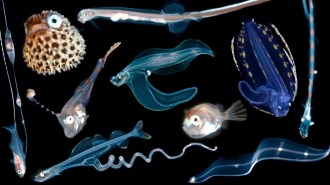 Animals
AnimalsDazzling underwater photos capture new views and scientific detail of fish larvae
Lab specimens of fish larvae are often mangled and bleached. Divers and researchers have partnered to study their rich colors and intricate bodies.
-
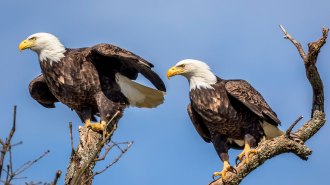 Animals
AnimalsA toxin behind mysterious eagle die-offs may have finally been found
A 20-year study of water weeds and cyanobacteria in the southern United States pinpoints a bird-killing toxin, and it's not your usual suspect.
By Susan Milius -
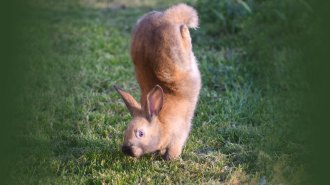 Animals
AnimalsA gene defect may make rabbits do handstands instead of hop
Mutations in a gene typically found throughout the nervous system rob rabbits of their ability to hop. Instead, the animals walk on their front paws.
-
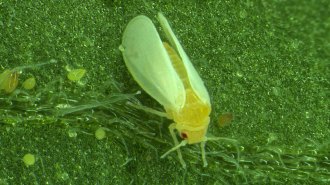 Life
LifeA plant gene may have helped whiteflies become a major pest
An agricultural pest may owe part of its success to a plant detox gene it acquired long ago that lets the insect neutralize common defenses.
-
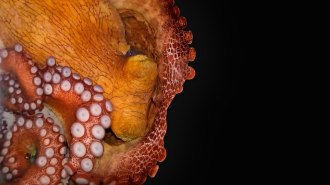 Animals
AnimalsOctopus sleep includes a frenzied, colorful, ‘active’ stage
Four wild cephalopods snoozing in a lab had long stretches of quiet napping followed by brief bursts of REM-like sleep.
-
 Animals
AnimalsDim lighting may raise the risk of a West Nile virus exposure
Dimly lit nights increased risk of West Nile virus exposure in chickens. Artificial light proved a better predictor of risk than population or paving.
-
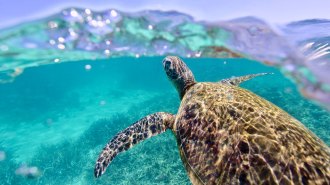 Animals
AnimalsWhy do sea turtles, penguins and sharks sometimes just swim in circles or spirals?
Tracking devices recorded the loops and spirals of 10 marine species. In some cases, scientists have good guesses for why; other times it’s baffling.
By Susan Milius -
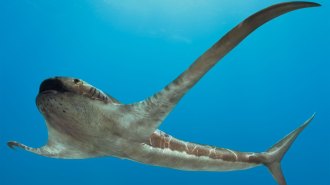 Paleontology
PaleontologyAn ancient shark’s weird fins helped it glide like a manta ray
Nicknamed eagle shark, the newly discovered ancient creature achieved underwater flight 30 million years before the first rays.
-
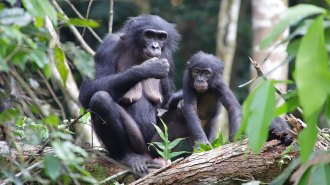 Animals
AnimalsTwo bonobos adopted infants outside their group, marking a first for great apes
Female bonobos in a reserve in the Congo took care of orphaned infants — feeding, carrying and cuddling them — for at least one year.
-
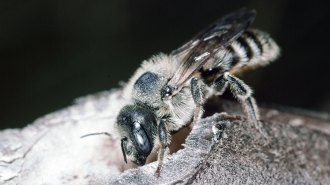 Animals
AnimalsBee larvae drum with their butts, which may confuse predatory wasps
Dual percussion instruments — one on the head, the other on the rear — give mason bee larvae a peculiar musical gift that may be a tool for survival.
By Jake Buehler -
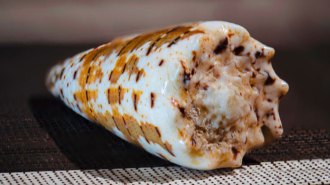 Animals
AnimalsCone snail venom may trick mate-seeking worms into becoming meals
Cone snail venom contains worm pheromone mimics, suggesting the chemicals may be used to lure worms during hunting.
-
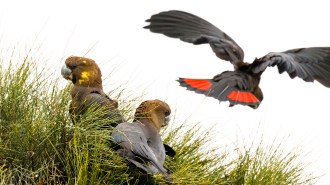 Animals
AnimalsA year after Australia’s wildfires, extinction threatens hundreds of species
As experts piece together a fuller picture of the scale of damage to wildlife, more than 500 species may need to be listed as endangered.